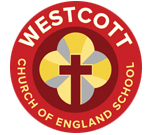Maths
Intent
Our intent is to inspire an enjoyment for Mathematics through nurturing potential, curiosity and discovery.
Our aim for our pupils is:
- to equip all our pupils with a high-quality mathematics education that provides them with a foundation for understanding the world, the ability to reason mathematically and an appreciation of the beauty and power of mathematics.
- Offer a multitude of opportunities to cover and embrace Christian and British Values. For example, the values of mutual respect and resilience are concepts that can be addressed directly through the Mathematical Scheme of Work as children listen and discuss their reasoning with their peers whilst grappling with a maths challenge.
- Adopt a mastery approach in the learning and teaching of mathematics where everyone can succeed for secure and deep understanding of mathematical concepts through manageable steps.
Planning involves longer being spent on each topic as mastery is an integral part of the system, which means a broadening of knowledge and skills can take place as part of pupils’ learning experiences. Pupils consequently progress through curriculum content at broadly the same rate, although support/intervention and broader learning opportunities provided can move groups of children on so that they are able to:
- Grasp concepts and methods, e.g. through more varied use of practical equipment
- Be challenged through exposure to greater depth in their learning, e.g. through tackling more complex problems in different contexts – in the case of higher attainers/rapid graspers
Implementation
Our whole curriculum places the children at the centre. Our programme of study is clearly mapped out in our skills and knowledge progression and is based on the National Curriculum supported by the White Rose Scheme. This ensures that skills and knowledge are built on year-by-year and sequenced appropriately to maximise learning for all children. All children are taught maths for at least 5 hours each week.
Differentiation appears in subtle forms within the classroom. Practise and consolidation play a central role in pupils’ learning experiences. Although the ‘pace’ in lessons may appear to be slow, this can mask development of deep understanding of mathematical concepts through use of small steps that encourage connections (for example, in derived number facts) to be made. Further challenge is provided to all children through use of problem solving, including those linked with real-life contexts.
In terms of assessment, and so that the mastery approach can work, we understand the need for pupils to achieve key objectives for their current stage of learning. Such assessment links with day-to-day assessment for learning, which informs teachers about the elements of learning children need to develop further.
In lessons, teachers use precise questioning to check conceptual and procedural knowledge. They formatively assess how misconceptions can be used as growth points in learning, whilst also diagnosing who requires intervention, meaning that all children are expected to ‘keep up’ rather than ‘catch-up.’ Assessment gathering is kept meaningful and is viewed as a diagnostic tool whereby collated information is used purposefully when planning pupils’ next-steps.
Through pupils’ learning experiences, teachers promote connections within and across key stage 1 and 2 National Curriculum domains, so that children are taken deeper with their understanding over time and recognise the interconnectedness of concepts. Pupils revisit concepts, for example, multiplication within area when presented as an array model, which means they absorb learning within their long-term memory. To secure firm foundations in early mathematics learning, those children in the Early Years Foundation Stage benefit from daily adult directed teaching experiences, which are then supplemented through opportunities to further engage because of child-initiated learning.
Varied use of practical resources, structures and representations, plus questioning that requires deeper reasoning is used to ensure all children are supported/challenged appropriately. A progression in key representations and structures, leading to understanding of sometimes complex and abstract concepts, is exemplified in the school’s calculation policy. This in turn supports the delivery of consistent approaches and equity of access for learners.
